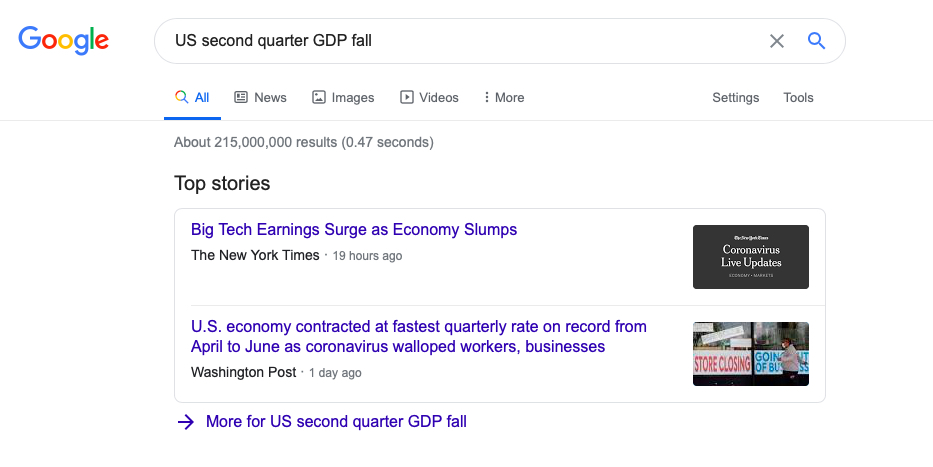The Donald Trump Reality Check
- Philip Ammerman
- Aug 1, 2020
- 4 min read
I’ve been doing a quick reality check on some popular news stories this week. The more digitally saturated we become, the more important it is to focus on facts, not on what false impressions are produced in your mind through stress, overwork and hormonal effects from cortisol, serotonin and others.
On Thursday, 30 July, at 08:30 am, the US Bureau of Economic Analysis released its second quarter GDP report, showing a year-on-year fall of 32.9%. (see screenshot)

To me, this news is a dramatic and urgent fact. It shows that due to COVID and the 2- month varying lockdown in the United States, one of every three dollars in profitable economic activity has been eliminated. In turn, I can begin estimating the longer-term impacts that we can expect, which are frankly deadly.
On the same day, at 3:46 pm, Donald Trump tweeted about the possibility of delaying the US elections due to alleged universal mail-in vote fraud. (see screenshot).
Now, whether I or you agree with Donald Trump and his tweet is besides the point. Please just look at the tweet, quietly for a moment, without interruptions. Let the information circulate in your mind.

Now, let's look at some media reactions to the story. Please note the difference between reporting, analysis and opinion in the four screenshots that follow. Each of these articles has been provoked by this tweet. And there are over a hundred million more reactions online.
Bloomberg

Financial Times

New York Times - News Analysis

New York Times - Opinion

Now, let's think about what we just saw.
The original tweet raised the idea of delaying the election as a question:

That Donald Trump is lying or exaggerating in the first part of the tweet is not in doubt: he is claiming an outcome that is neither backed by data, and is presently unknown.
That he is trying to be re-elected through any means possible is also not in doubt.
That he may be trying to float the idea of remaining in power? Not certain, but there is a strong possibility when combined with other data.
Is this an official Presidential announcement to delay the election? No, it is not.
This morning I did a primitive fact check: I compared the Google search mentions of each case. And I found that:
a. The GDP story has 215 million hits to date
b. The Trump tweet has 115 million hits to date.

And this, to me, illustrates the problem that we face.
With a single, half-assed tweet, one of 10-15 he posts every day, Donald Trump has shown both his tendency to lie and to disrupt the basic foundation of a functioning constitutional state.
Yet the media reaction, though its own momentum, responsibilities, and operations, almost risks irrelevance in trying to rebut or report on Trump's delusions. This media reaction is both driven by and drives the social reaction.
The result is what we see on Google today. A cataclysmic economic and social fact -- the GDP fall caused by COVID -- is only twice as relevant as a single conjecture made by a sad figure of a President.
Questions:
How is any democratic polity supposed to function today if we can no longer collectively understand the truth from a lie?
How is any society supposed to function when its elected leaders, irrespective of political ideology, lie with impunity? (And yes, Donald Trump is definitely an outlier in that respect. Bigly.)
How are our individual emotions and decisions affected by online behaviour and the wider media and political presence on it? When we react with anger online and cortisol floods through our system, how do our wider perceptions change? And how badly is our subsequent decision-making affected?
There are some interesting “facts” floating out there:
a. By one count (unscientific, 2015), Americans are exposed to between 4,000 and 10,000 advertisements per day. This includes brand exposure, not strictly advertising. https://www.redcrowmarketing.com/2015/09/10/many-ads-see-one-day/
b. An older estimate (Yankelovitch, 2007) estimated that Americans see 5,000 advertising messages per day (including brand names). https://web.archive.org/web/20200320191358/https:/www.nytimes.com/2007/01/15/business/media/15everywhere.html
c. In Greece and Cyprus, I am now seeing one Facebook advert in the stream for every four organic posts. Of the four organic posts, however, many are promotional in nature reposted by friends. For example, these include company posts and re-posts, news reposts, memes, video links, etc. And this does not count adverts in the right column, or in Messenger, or everywhere else online.
My point is this:
Be careful of what you read online. Try to get to the primary source. Try to rely on objective sources of information.
Try to understand what you are seeing. Most of what you see online is not news. Most is not even fact. It is conjecture or reaction to conjecture.
Be careful of how what you see online forms your interpretation of reality. It is not reality. It is not even universal: two different people will have two different interpretations of the same item.
Be careful about how your long-term attitudes, emotions, and decisions are affected by repeated exposure to the online universe and the social media universe in particular.
As human beings, we face extreme difficulty of differentiating fact from opinion in many cases given how we get our “facts”.
This is not new, of course. But it is the first time in history we are exposed to so many conflicting data, much of it with consumer manipulation in mind.
And where our ability to process that data is affected by powerful emotions triggered by hormones such as serotonin, dopamine, cortisol and more.
It’s only going to get worse.


Comments